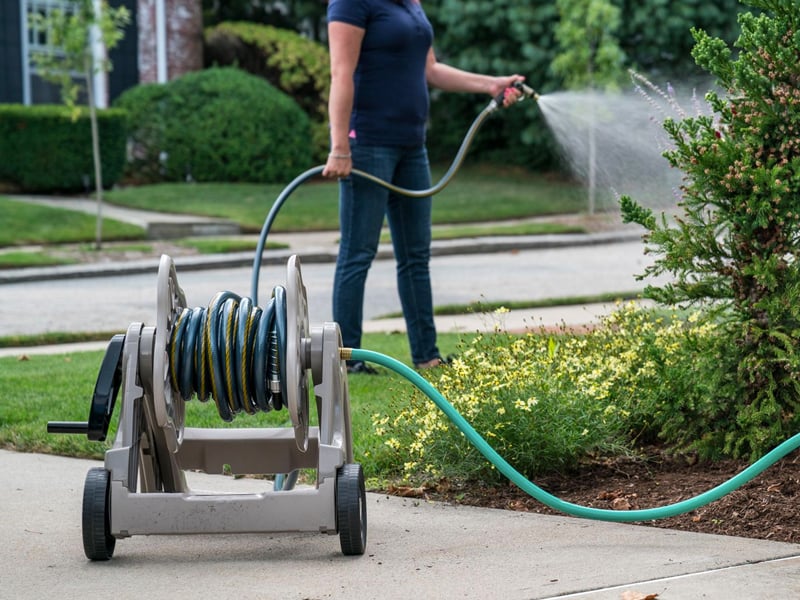
Garden hoses are a useful device in the home. Every household requires at least one, whether for watering the grass, washing the car, or other house chores. According to The Gardening Products Review, a decent garden hose should last between 5 and 10 years. However, many homeowners who purchase low-quality hoses have themselves replacing them every year because of leaks, fractures, or rust.
Although certain faults may be fixed, it is often more cost-effective to purchase a high-quality hose in the first place. There are various hoses of varying quality to select from, so here's what to look for when looking for a new one.
Material Type
We often construct garden hoses of rubber, vinyl, or polyurethane. Vinyl hoses are the cheapest, lightest, and have the lowest lifetime. Rubber hoses are more agile and less prone to cuts and abrasions than other types, but they are more costly. Higher-quality hoses last longer since they possess reinforcement that lower-quality hoses typically don't.
Thickness, Diameter, and Length
Hoses comprise layers, with each additional layer improving the strength. Thicker hoses kink less frequently, guaranteeing constant water flow while in use. Hose thicknesses range from half an inch to an inch, with residential-use hoses generally covering five-eighths of an inch. The most common hose lengths are 50 to 100 feet, although they can be as low as ten feet or as long as 250 feet. The lengthier the hose, the bulkier and more difficult it is to manage. Longer hoses are not only more expensive, but they are also heavier to carry about, need more storage space, and can be harder to drain before storing for the winter.
Couplings
A heavy duty hose connects to a water supply via couplings or fittings made of metal or plastic. Brass couplings are heavy and more difficult to tighten while being weather and corrosion-resistant. Plastic couplings are simpler to tighten but shatter more easily and may not last as long. By carefully maintaining your garden hose, you may extend its life. Drain the water from the hose after being used to avoid mold or bacteria growth. Never run hot water through the hose, and never leave pressure in the hose needlessly since it can cause the hose to break.
Couplings
The strength of a garden hose can be assessed in terms of 'burst pressure' (the water pressure at which it is likely to rupture). If you want to use a nozzle or a sprinkler, choose a hose with a burst pressure of more than 350 psi.
Check your handbook before purchasing a pressure washer hose; you may require a greater psi. When selecting a garden hose, ensure you consider the above factors and the primary reason you want to purchase it. Doing this can help you select the best heavy-duty hose for your lawn and landscaping needs. Do you need a heavy duty hose? Reach out to us today!



